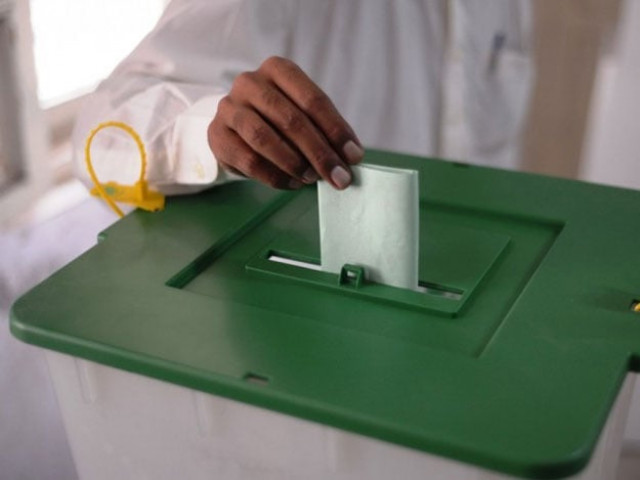Political parties break chieftains’ dominance in tribal districts
Only tribal chiefs affiliated with political parties won 2018 elections; trend likely to continue in PA polls

Representational Image. PHOTO: AFP
July 2018 saw the first time in the history of the erstwhile Fata region that all 12 NA seats were won by political parties against the nonpolitical elites. The six seats of the northern tribal districts – Bajaur, Mohmand, Khyber and Orakzai – were won by PTI, while of the remaining six seats of the southern tribal districts of Kurram, North and South Waziristan and the Frontier Region seats, three were won by JUI-F, two by PTM-aligned independents Ali Wazir and Mohsin Dawar, and one by PPPP.
In 2013, three NA seats went to the PMLN, one to JUI-F and one to PTI, while six seats went to independent tribal feudal lords.
In 2011 the PPP government extended the Political Parties Act to the erstwhile FATA region, making 2013 the first time elections were held with the direct participation of political parties.
In 2018, political parties properly pursued these seats, leading many tribal feudal lords to join political parties to, although a handful still opted to remain independent till today.
Among those who joined political parties were Muneer Khan Orakzai, Peer Noorul Haq Qadri, and Sajid Hussain Turi were elected on JUI-F, PTI, and PPPP tickets, respectively.
ECP postpones Ghotki by-poll till July 23
Former PML-N MNA and Khan of Pashat Shahabuddin Khan – who won election on a PML-N ticket in 2013 and was among those who fought to remove the Frontier Crimes Regulations from Fata – former governor Shaukatullah Khan and his father Bismillah Khan, and former independent MNAs Shahjee Gul Afridi, Hamiullah Jan, and Bilal Rehman contested as independents and lost.
Now, Shahabuddin is again contesting the upcoming elections on a PML-N ticket, and two of his sons are contesting for provincial assembly seats from Bajaur on PML-N tickets.
Similarly, Shaukatullah tried to get a PTI ticket, as did his son, but after failing to secure it, they are now supporting the PTI candidate. Bilal Rehman and his brothers, former senator Hilal Rehman and Abbas Rehman, have opted to contest the elections as independents. Shahjee Gul’s son and nephew are contesting as independents from Khyber, while Federal Minister Noorul Haq is supporting independent candidate Shermat Khan and PTI candidates on two other seats. Haq’s support for an independent has caused PTI candidate Shahid Shenwari to stage a protest against him in Peshawar.
Interestingly, JUI-F MNA Muneer Orakzai’s brother is contesting on a PTI ticket.
Political analysts in the region have noted that although these tribal elites have strong vote banks in their constituencies, after the Fata merger, younger voters in these districts have gotten more political awareness and have shown an inclination to vote based on parties rather than candidates, which may hurt independents.
Shah Nawaz Tarakzai, who has been covering elections in Fata since 2008, said that tribal elders are even holding jirgas to boycott the provincial elections, but the youth are not listening to them, which is why political party candidates won in the 2018 general elections and will win again in the provincial elections.
ECP urged to ensure free, fair elections in ex-FATA
The younger generation also accuses some elites of supporting the FCR, which they blame for the backwardness of tribal districts, Tarakzai added.
Tarakzai also noted that while he believes political party candidates will win, he thinks that the chances of a party are increased by allotting tickets to tribal chiefs.
Mehboob Sher Mohmand, a local Journalist who has also worked as an election monitor in the past few elections, said the non-political tribal lords were getting votes from the poor masses in the name of tribes, but now the scenario has completely changed and tribesmen are voting for political parties instead of their tribal chiefs. He added that women were previously not allowed to vote by tribal elders, but today women have a free hand to vote, which has also changed the dynamics of the electoral process in the region.
Published in The Express Tribune, July 17th, 2019.



















COMMENTS
Comments are moderated and generally will be posted if they are on-topic and not abusive.
For more information, please see our Comments FAQ